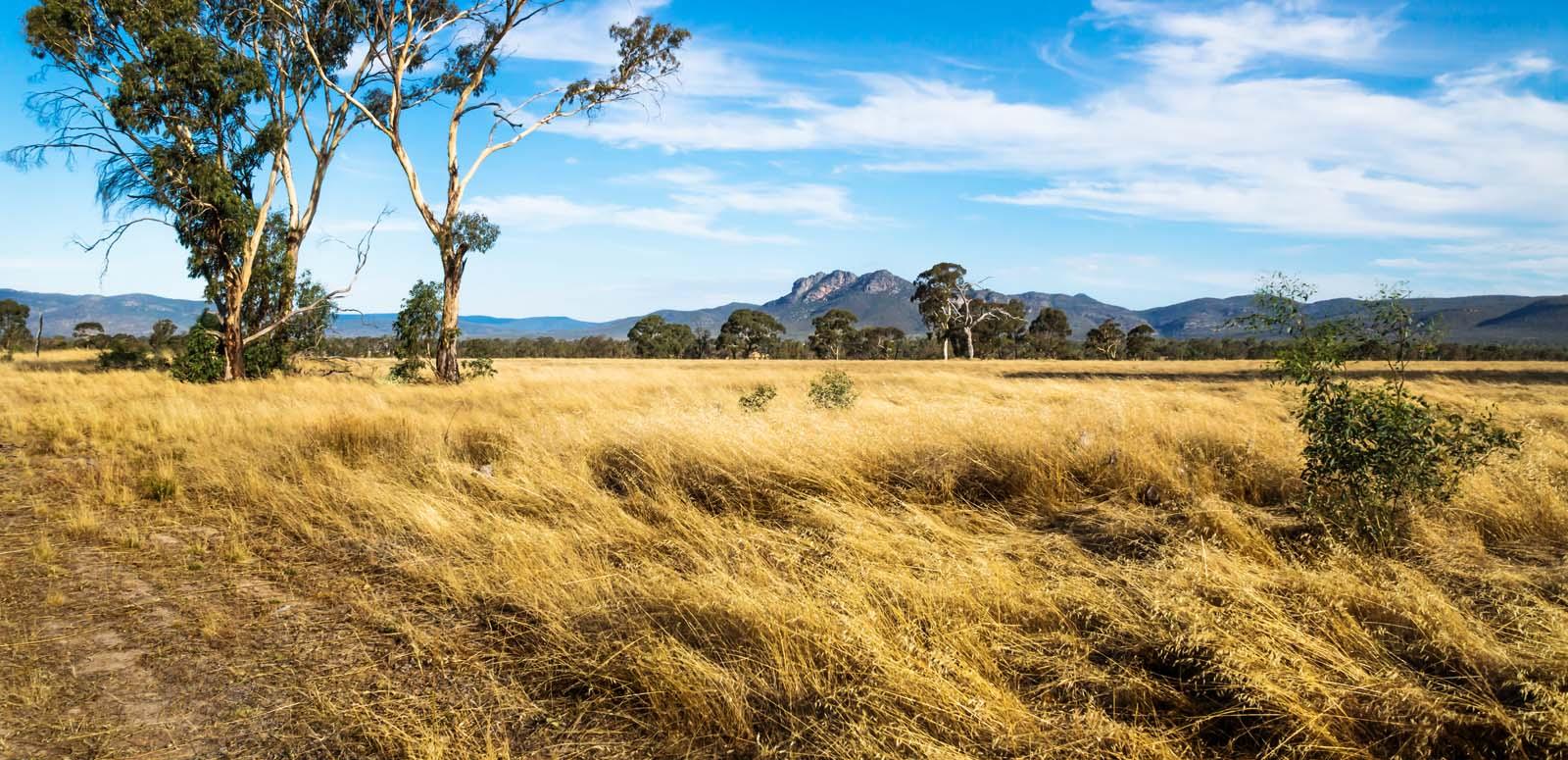Guest contributor Jennifer Bowen shares extracts from several rare radio programs in the NFSA collection. Funded by the Rural Bank of NSW, they paint a picture of regional Australia as a place of pioneers and progressive change.


Guest contributor Jennifer Bowen shares extracts from several rare radio programs in the NFSA collection. Funded by the Rural Bank of NSW, they paint a picture of regional Australia as a place of pioneers and progressive change.
The history of radio in Australia is predominantly a metropolitan story with most of the first radio stations in capital cities. Wireless, championed as a means of ‘annihilating distance’, brought news and entertainment from the city to the country – with little suggestion of traffic the other way. Early talks for ‘the man on the land’, provided by state agricultural departments, were the only hint that geography might play a part in radio output.
This was the context in which I stumbled across a cache of early recordings at the NFSA: an extraordinary assortment of dramatised radio programs produced from 1939. Finding any recordings from this period is exciting, but these were distinctive in putting regional interest uppermost and suggested a new episode in the story of broadcasting in Australia.
The material was already catalogued but had been overlooked in previous radio histories, arguably because it was broadcast on commercial radio whose early years are poorly archived. The recordings immediately raised questions: who made them, how do they sound and what was their impact?
The answer to the first question was easy, if intriguing: the programs were funded and produced by the Rural Bank of NSW, established by the state government in 1933. The bank’s involvement with radio extended over 15 years, resulting in extensive series with writers and actors as well as farmers and agriculturalists.
The earliest series in the NFSA collection is Grand Parade, broadcast weekly from January to December 1939. Each episode narrated the development of a country town in NSW – from Armidale to Temora, Bathurst to Bega – interspersed with dramatised scenes of explorers and founding families.
The opening announcement of this episode linked the series to Sydney’s Royal Easter Show, an annual event that still brings many NSW rural communities together to celebrate their achievements:
The Grand Parade: Dubbo, Episode 26, c1935. NFSA title: 415949
Other episodes of Grand Parade praised the courage of pioneers and the prosperous path they prepared for those coming after them. In fact, this confident message of development suggests a reason for the bank’s part in their production.
During the interwar years, state governments became increasingly anxious about rural depopulation and a perceived reluctance of Australian farmers to embrace modern approaches to agriculture. In 1935, the Rural Bank released the film Conquest; it showed rural progress in heroic terms. Films continued as an occasional part of the bank’s media portfolio but radio can now be seen as its preferred medium for depicting rural work as service to the nation in conjunction with a tradition receptive to change.
The NFSA collection has recordings of 18 episodes of Grand Parade, some still to be digitised. Scenes re-enact discussion over the diversification of farming practices, while extolling the progressive development of each town, as in this extract from an episode about Quirindi:
The Grand Parade: Quirindi, Episode 33, c1935. NFSA title: 415950
Using radio to convey a message extended to more acute problems. A 26-part series about bushfires called Red Terror was launched on northern NSW radio stations in 1939; each 5-minute episode staged debates about firefighting and fire prevention between a cast of entirely fictitious characters, pre-empting the ABC’s rural dramas The Lawsons (c1944–49) and Blue Hills (1949–76) by several years.
None of the early episodes of Red Terror has survived, but the NFSA collection holds one from 1944 and you can hear an extract below:
The Red Terror, No. 13, 1944. NFSA title: 80685
The bank’s Agricultural Magazine of the Air ran on 17 NSW commercial stations in 1939, and was still on air in the 1950s. Postwar, it actively promoted ideas of progressive farming by sending Australian farmers to the USA and approaching the BBC for talks on new approaches to agriculture overseas.
Ideas of progress were also part of an episode, ostensibly promoting play reading as a leisure activity for rural families:
Agricultural Magazine of the Air, Episode 30, 1948. NFSA title: 567731
It can hardly have been by chance that the play used as an example in this program was Henrik Ibsen’s An Enemy of the People (1882), a searing social commentary in which a town turns against the local doctor when he attempts to reveal how polluted its popular spring water has become. The narrator of the radio program used the message of the play to urge that change be accepted by rural Australians, as can be heard here:
Agricultural Magazine of the Air, Episode 30, 1948. NFSA title: 567731
Later radio series produced by the Rural Bank continued to present regional Australia as a place to find pioneers and progressive change. In 1940, These Old Homes went to air, followed by Treasures of the Mitchell (drawing on the collection of the Mitchell Library), and postwar, Australian Wonderland.
The series are fascinating now, both for their understanding of bank service and the depiction of social attitudes of the time, as well as the origins of many practices used by ABC rural radio and later program makers.
Jennifer Bowen recently completed a PhD at the University of Melbourne in which she showed how different interests used early radio to spread their ideas. Previously, she was an Editor with the BBC World Service and has produced many programs for ABC Radio National. She currently teaches journalism at Monash University.
The National Film and Sound Archive of Australia acknowledges Australia’s Aboriginal and Torres Strait Islander peoples as the Traditional Custodians of the land on which we work and live and gives respect to their Elders both past and present.